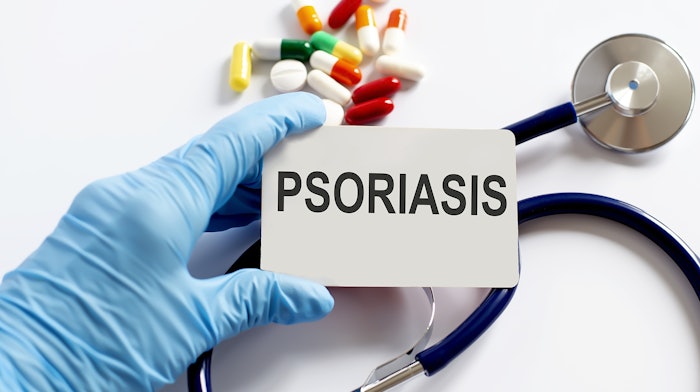
Data presented October, 29, 2020 at the EADV's 29th Congress, EADV Virtual, showed that systemic inflammation of psoriasis can be treated orally with a non-living strain of commensal microbe.
The phase 1b clinical study by Evelo Biosciences included two cohorts (12 and 18 patients) with mild to moderate psoriasis and was designed to evaluate EDP1815, a preparation of a non-living single strain of the bacterium Prevotella histicola isolated from the small intestines of a human donor. Patients were treated for 28 days with follow-up off treatment for 42 days.
Early results showed that EDP1815 was well tolerated in daily doses of up to 8.0 x 101 cells administered for up to 28 days, with a tolerability profile comparable to placebo. At 28 days, the mean percentage reduction in Psoriasis Area Severity Index (PASI) score for both of the study's cohorts was 16% compared to 1% in the placebo. This increased to 21% in the high-dose cohort at day 42, but not the low dose (10%) or placebo cohorts (3%).
The mean reductions in Lesion Severity Scores (LSS) at 28 days were 15% and 23% in the high- and low-dose cohorts, respectively, compared to a 1% increase from baseline in the placebo group. Further clinical improvement was shown in the high-dose cohort (24%) at day 42.
“Although several treatments options are available for psoriasis patients with the most severe disease, there is a great need for new innovative methods for those living with mild-moderate disease. I decided to work with Evelo Biosciences after seeing the huge potential in EDP1815 and its oral mechanism of action. It is a real breakthrough, especially as we have seen from the pre-clinical and phase I trials that it was well tolerated with no overall difference from placebo and with no severe side effects reported. We are extremely encouraged to see that these data support further clinical development of EDP1815 in psoriasis. We are already in phase II clinical trials across the UK, Poland and US. This is a potentially massive win for the majority of psoriasis patients, as it has the potential to improve treatment options and perhaps change the current standard of care," said Dr. Douglas Maslin, MD, dermatologist and pharmacologist at Addenbrooke's Hospital in Cambridge, UK.











